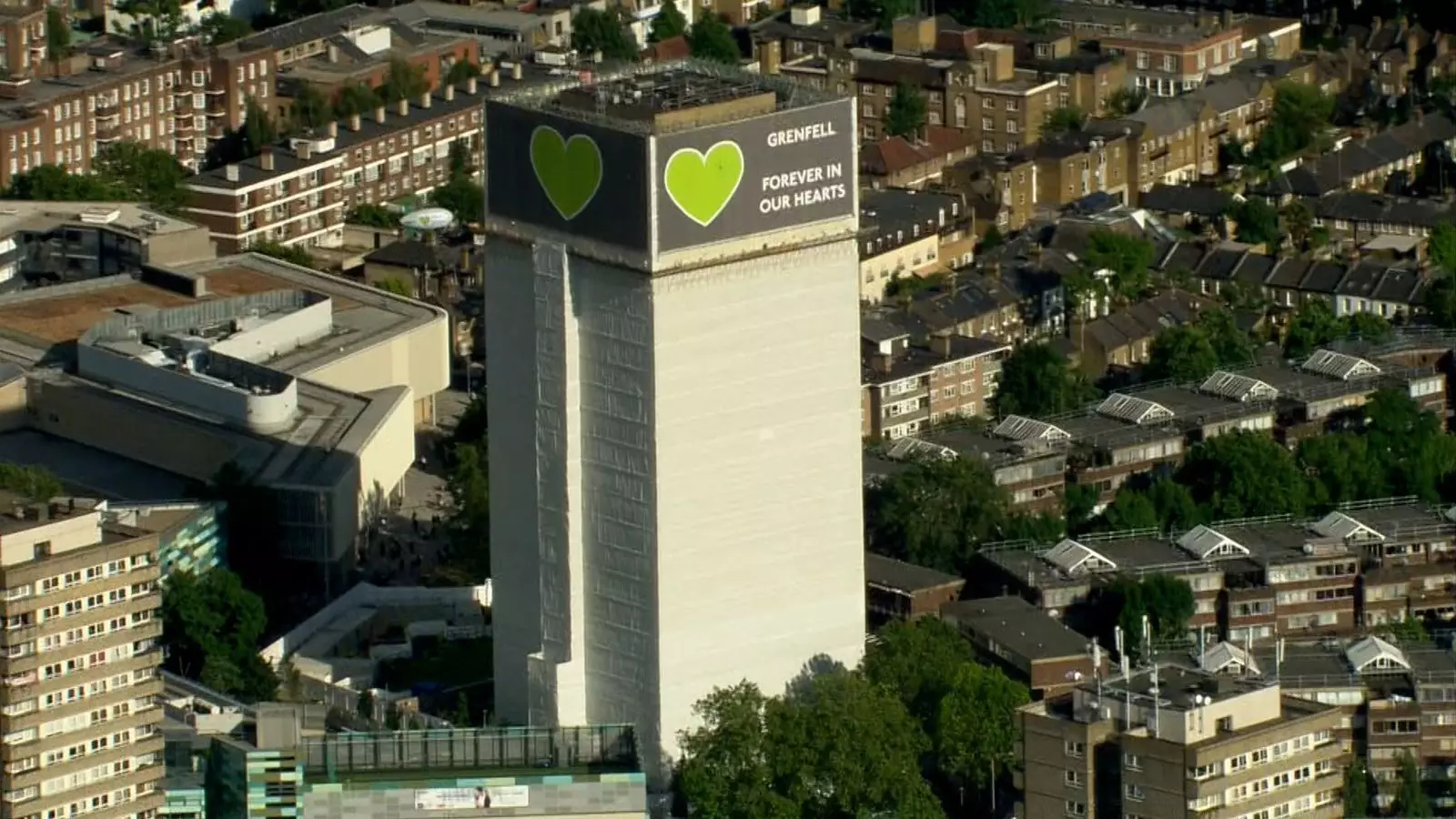The Grenfell Tower fire remains one of the darkest chapters in modern British history, a tragedy that claimed 72 lives and left countless families shattered. Despite nearly eight years passing since that fateful night, the anguish of the survivors and bereaved families remains palpable. Recent government decisions regarding the building’s future have once again reignited deep-seated frustrations among those affected. Critics argue that the administration is not only overlooking the voices of the bereaved but also perpetuating painful memories by moving forward with the demolition of the tower.
The official announcement regarding the decision to demolish Grenfell Tower came during a meeting led by Deputy Prime Minister Angela Rayner, where representatives from Grenfell United—a group representing bereaved families and survivors—expressed their outrage. Their criticisms highlight a broader issue: the government’s apparent indifference to the sentiments of those most affected by the tragedy. Rayner’s inability to provide specific reasons for the decision, coupled with her refusal to disclose how many bereaved families participated in the consultation process, raised eyebrows. The overwhelming emotion in the room revealed a stark reality: the majority of attendees opposed the demolition.
This sentiment was echoed in statements made by Grenfell United, emphasizing the “disgraceful and unforgivable” nature of ignoring the bereaved in discussions about their loved ones’ memorial. Families did not simply lose relatives—they lost a sense of security and community, and such decisions affect their path towards healing. The insistence that the voices of the bereaved were considered in this decision feels disingenuous to many.
In response to the backlash, the government has insisted that the wellbeing of those affected is a top priority. They describe this decision as a “deeply personal matter,” pledging commitment to incorporating community voices into future discussions. However, this assertion appears hollow when juxtaposed against the palpable anger and anguish expressed by the bereaved families. For many, it signifies a repetition of past failures—a failure to listen and respond adequately to their needs and grief.
Individuals associated with Grenfell Next of Kin articulated these frustrations, framing the demolition decision as a deeply sensitive issue. They highlighted a prolonged period of uncertainty marked by consultations that appear to lead nowhere, causing continued emotional distress rather than providing solace. It seems that instead of facilitating closure, the government has generated more turmoil with the demolition announcement.
At the heart of the ongoing discussions is a crucial question: how should we remember Grenfell Tower? Many survivors and bereaved families are not merely seeking to demolish a physical structure; they are advocating for a space dedicated to the memory of those lost—a space that honors their stories and contributes to healing rather than exacerbating pain. Grenfell Next of Kin’s call for a conversation about what will occupy the site in the future reflects a yearning for an act of remembrance and reclamation.
Individually crafted memorial spaces can play a crucial role in transformative grief processes; they have the potential to foster community resilience. Families want to envision a future where their loved ones are not forgotten, and meaningful engagement in creating a memorial is essential. The opportunity to influence the narrative surrounding the Grenfell tragedy lies in community collaboration and dialogue, emphasizing healing rather than division.
The backdrop of the ongoing discord cannot be overlooked: findings from the Grenfell inquiry painted a disturbing picture of “systematic dishonesty” and negligence that contributed to deaths on that terrible night. Authority failures exposed through inquiry reports have left a bitter taste in the mouths of survivors. They feel that their struggles for justice have been sidelined as decisions are made that seem divorced from the real human experiences at stake.
The delays in decisions surrounding criminal charges only compound the community’s suffering. Many families feel as though justice remains perpetually out of reach, entwined with their grief and unresolved loss. This sense of collective injustice further fuels the fire against the government’s current stance.
As the Grenfell Tower continues to stand, its fate hangs in the balance amid heated debate. It is crucial that the government takes a step back to truly listen to the voices of bereaved and survivors, honoring not only their memories but also their agency in shaping a collective future that acknowledges pain and seeks healing.



Leave a Reply